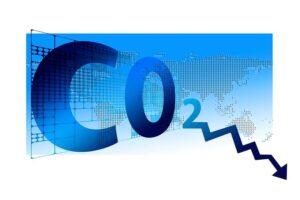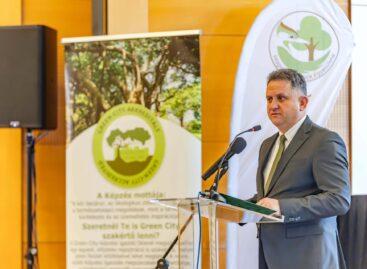From now on, a regulation requires the reduction of the amount of greenhouse gases entering the air
At the plenary session in Strasbourg, the European Parliament adopted the revised rules of the joint commitment regulation, which obliges all member states to annually reduce the amount of greenhouse gases (GHG) entering the atmosphere through road transport, heating of buildings, agriculture, small industrial facilities and waste management – informed the EU Parliament on Tuesday.

(Photo: Pixabay)
The joint commitment decree is part of the climate protection package entitled “Direction to 55 percent”, which, in accordance with the European climate regulation, aims to ensure that the European Union emits at least 55 percent less greenhouse gases by 2030 than in 1990. The decree adopted with 486 votes, 132 against and 10 abstentions sets a GHG reduction target of 30 percent at the EU level by 2030 compared to 2005 emissions, which would increase to 40 percent following the review. For this, for the first time, the member states would have to reduce their emissions not uniformly, but by between 10 and 50 percent. Individual 2030 targets are based on GDP per capita and cost-effectiveness considerations. From now on, the member states will not be able to exceed the annual GHG emissions limit allowed to them either – they wrote.
No more loopholes
In its statement, the EP emphasized: the revised provisions close the loopholes that would prevent the achievement of the general EU-level emission reduction goal. Accordingly, certain transactions of emission trading units will be limited: it will be regulated how many emission units a given member country can transfer from one year to another or use for the burden of its future framework, as well as how much it can trade with other member countries.
The revised regulation must now be officially approved by the Council of the European Union. It will enter into force twenty days after its publication.
MTI
Related news
European Court of Auditors: EU Commission proposals affecting the common agricultural policy may cause uncertainty
🎧 Hallgasd a cikket: Lejátszás Szünet Folytatás Leállítás Nyelv: Auto…
Read more >Walnuts are available at incredible prices
🎧 Hallgasd a cikket: Lejátszás Szünet Folytatás Leállítás Nyelv: Auto…
Read more >Related news
II. Green Gastronomy – Marketing Communication Workshop organized by the MMSZ HoReCa and Green Section
🎧 Hallgasd a cikket: Lejátszás Szünet Folytatás Leállítás Nyelv: Auto…
Read more >Retail sales of organic products in Hungary increased by 13.9% – our country is the second fastest growing market in the European Union
🎧 Hallgasd a cikket: Lejátszás Szünet Folytatás Leállítás Nyelv: Auto…
Read more >








